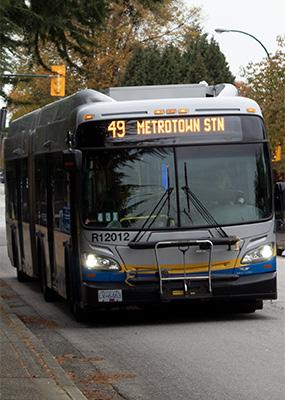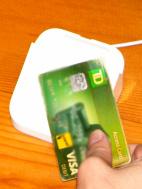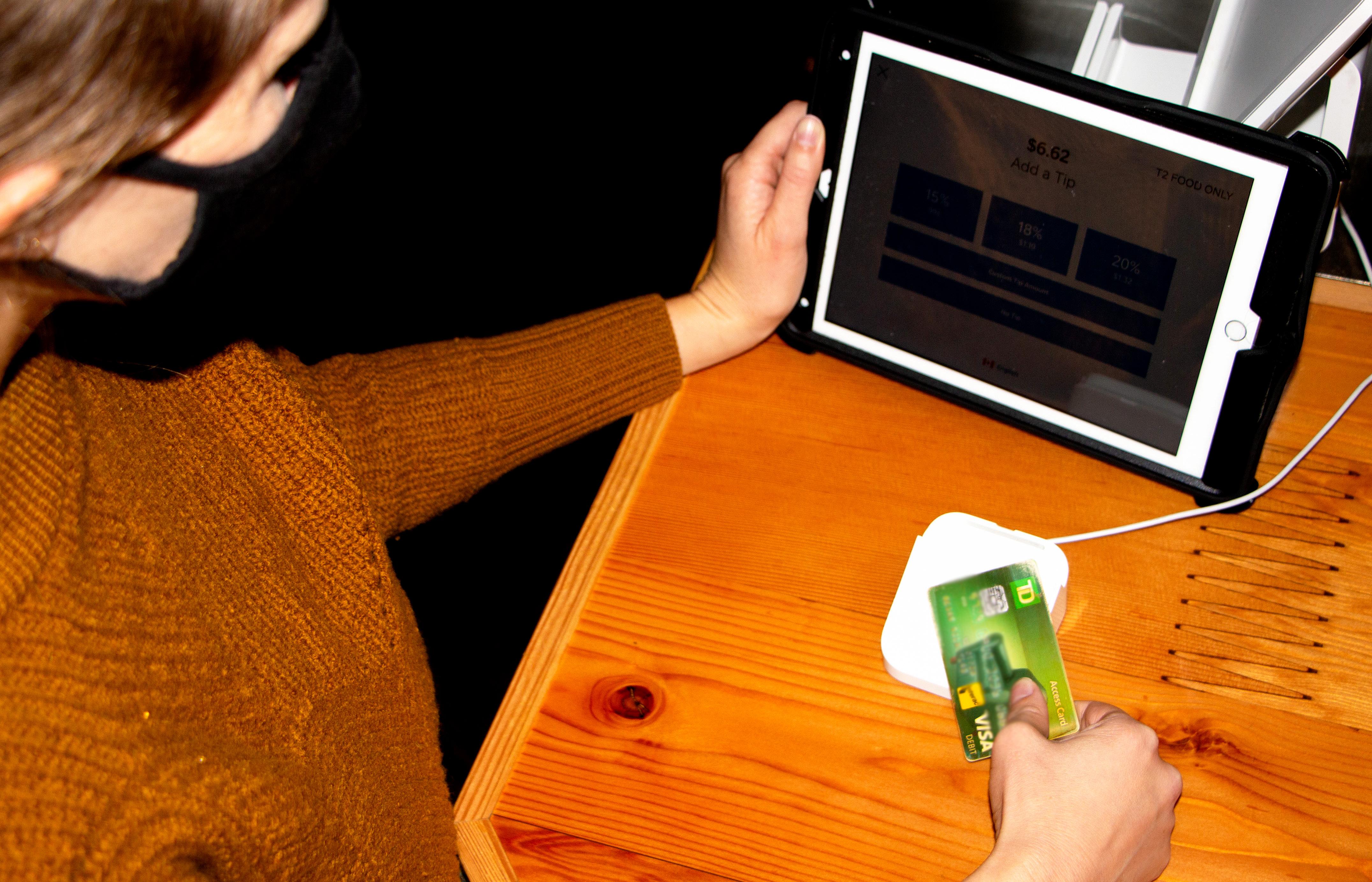COVID-19 Money
More transactions are going cashless due to the rising concern in a COVID world. P2
Esports Opener
Langara's esports starts off with mixed results to kick off what should be a tough season. P2
No more Upass


The loss of Upass not made up by the lack of physical classes. Langaravoice.ca
Youth elect stress
American election stressing out Canadian youth
By CATHERINE MWITTA
Young Canadians feel uncertain about their future in light of the 2020 U.S. elections, says a Vancouver-based counsellor.
Tricia-Kay Williams, a counsellor at Metamorphose Counselling in Vancouver, said that Canadian youth are experiencing global stress.

“It’s definitely circumstantial with COVID-19 and the sort of political climate that we’re experiencing a global stress, a global grieving. So now you’re no longer stressed about your job or activities. Now you’re stressed about things happening across the world,” Williams said.
Many young Canadians like Michaela Peters, a volunteer at the Oct. 24 protests at the Vancouver Art Gallery in support of Mi’kmaq fishers and their rights, said that there has been an increasing “negative change” in the political climate since U.S. President Donald Trump’s election win in 2016.
Antoine St. Marie, a young Canadian who is a member of Fightback, an anti-capitalist organization, said the increasing political anxiety in Canada and the United States have affected youth very hard. “I think that has to do with [the fact] that we live in a society that doesn't offer people a future,” St. Marie said. “It doesn't surprise me that the system in crisis produces this kind of massive polarization.”
Online exams cant hack it

With classes online students now have new ways to cheat
By EMMA GREGORY
Stephen Phillips LANGARA INSTRUCTOR

Stephen Phillips, a political science instructor at Langara College, said that over the last decade, political parties have paid for ads to run throughout the year even before the elections. “This has never been done before in Canada, and political parties adopting this sort of practice from their respective politicians in the U.S. is no coincidence,” Phillips said.
While tensions may still be high in North America, Williams said the Canadian youth shouldn’t concentrate on that too much. “Focus on what they can do. Be assertive instead of aggressive.”
With courses and exams going online there has been a significant rise in cheating and violations of student integrity that the college and instructors are struggling to control.
With college now online, students get to take their exams unsupervised. The online format opens the opportunity for students to call each other and discuss the answers or exchange files as they are both taking the test. While others have beenw taking advantage of the lack of supervision to simply search for the answers online.
Manager of Student Conduct and Judicial Affairs Maggie Ross said that incidents of cheating are being reported by Langara instructors more often
“Figures for spring 2020 show a 50 per cent increase in reported incidents over the same period in 2019. Faculty are vigilant in identifying and reporting student Academic Integrity Violations,” Ross said.
In an anonymous Brightspace reflective assignment conducted by Langara instructor Jessica Kalra PhD, some students said they did not realize the impact that cheating can have on the value of credentials.
“I didn’t realize or think about how an individual not adhering to the college policies could diminish the credentials of the entire school,” one student commented on the survey.
“Everybody cheats,” said Gurkiratpreet Singh, a thirdyear geography student. Singh said he does not cheat. “I write my notes. I read them twice. I don’t need to cheat.”
On some exams, the teachers make it impossible to cheat.
In one of his honour-system, closed-book tests, Singh was given 35 minutes to answer 35 questions, and he does not see how a student would have enough time to consult their notes if they wanted to cheat. One student, who spoke on condition of anonymity because they feared disciplinary action from the college, said they didn’t think cheating was morally wrong.
Especially if teachers are not giving students enough time to think about their answers in high-speed tests.
“I need time to stop and consider my answers,” the student said. “But it depends. I don’t think medical students should cheat.”
Some schools, such as the University of Regina, have employed proctor services such as Proctortrack. This software monitors live video feed, tracks student eye movements and identifies any open applications on the student’s screen.
Langara College has no plans to use a proctor service, said Erin Hagen, a student conduct officer. “We try to promote academic integrity as a concept.”

Second-year, psychology student Alyssa White said she does not cheat, and she thinks cheating is morally wrong.
But when presented with a hypothetical situation in which a student worked 30 hours a week plus had a four-course workload and cheated on one or two questions on an online exam, White was less categorical about her stance that it was morally wrong.
“No,” she said.
ONLINE SPECIAL
LIFE
SPORTS
PRODUCED BY LANGARA JOURNALISM STUDENTS | WWW.LANGARAVOICE.CA
NOVEMBER 05, 2020 • VOL. 54 NO. 05 • VANCOUVER, B.C.
A student who was not interviewed for this story studies their textbook in the T Building, at Langara College. Emma Gregory Photo
“Figures for spring 2020 show a 50 per cent increase in reported incidents over the same period in 2019. Faculty are vigilant in identifying and reporting student Academic Integrity Violations.”
— MAGGIE ROSS, MANAGER OF STUDENT CONDUCT AND JUDICIAL AFFAIRS
Mo money mo COVID problems
More shoppers have begun embracing going cashless due to the pandemic
By MEG MCLACHLAN
Despite the increasing use of digital payments since the start of the COVID-19 pandemic, many Vancouver businesses are still accepting cash.
Many coffee shops, breweries and retail stores only accepted credit and debit cards when they reopened this spring, believing the virus can be transmitted through contact with money.
Some businesses decided to accept physical money and mitigate the risks with higher cleaning standards.
“We did at the beginning just use card[s], but with all of our cleaning procedures that we have to do, we take
cash because we are super safe,” said Carolyn Snow, an employee of Finches Tea House located on West Pender.
Since the pandemic, 12 per cent of Canadians have had cash payments refused by merchants, according to a recent survey conducted by the Bank of Canada.
A handful of Vancouver-based businesses are still not taking cash payments from patrons.
33 Acres, a Vancouver-based brewery, has not accepted cash since they reopened and have no plans on changing that policy, citing the lack of hygiene associated with cash.
According to a study done by the World Health Organization, the
COVID virus can be found on surfaces such as stainless steel and plastic for up to 72 hours. However, the WHO has not recommended against the use of money, but is reminding people to wash their hands after handling cash.
The Bank of Canada in a report strongly encourages businesses to continue to accept cash. Refusing money from a customer can put some people at risk who do not have other forms of payment, especially for food and pharmaceuticals.
Most Vancouver-based businesses accept all cash, card and digital forms of payment.

“[When] we opened our door and did cashless for a couple of weeks,
[we] realized quickly that a lot of people have cash and … you turn the cash away, you turn the sale away,” said Miles Wishlow, owner of The Corner Store, a high-end clothing company in Mount Pleasant.
However, a cashless economy might be in the future following trends seen in digital payment options like Wehat Pay and Alipay.
“One of the things that governments are thinking about right now is introducing government digital currency.
Central Bank digital currency … which could potentially be replacing physical cash,” said Lucas Herrenbrueck, an associate professor of economics at SFU.
The pandemic could be responsible for fast-tracking the switch to a digital form of currency. According to a report published by the Bank of Canada, 35 per cent of Canadians reported decreasing their use of cash as a result of the pandemic.
It is unclear what the exact cause of the decrease is. But nevertheless, this may be the beginning signs of consumer’s doubt in physical cash.
“Metal coins [are] a social convention, just like paper money is and just like digital money is becoming,” Herrenbrueck said “Paper money works fine, as long as everyone trusts in it, and it is a problem when everyone doesn't.”
Esports teams make their season debut
Langara Orange and Black starts off with different results this year
By VERONIKA
KHVOROSTUKHINA
Entering the Collegiate Starleague, team Black prevailed against the University of Denver with 2-1 score, while team Orange lost to the University of California, Santa Barbara at 0-2.
Two teams of the Langara Esports Association competed for the very first time in the North American division of the international League of Legends
tournament on Oct. 24. The league, which includes universities and colleges from across the continent, including local UBC and SFU, runs until Jan. 31 with playoffs beginning in April.
Langara Esports Association is the only sports organization currently active on campus, as the COVID-19 pandemic decimated traditional athletics. Sport fans have been unable to attend games they might normally be used to, such as basketball and soccer.
Nelson Than, a member of the Black team, intended to use their victory against the big-name school as motivation to keep improving, “[Our goal]
is to learn, become better players and, of course, try to win the entire thing.”
“We lost, but it’s all part of the learning process,” Team Orange player Faith Vaughan said, “We are very hard-working, and we’ve grown so strong as a team this past week.”
All 10 of the Langara athletes participating in the tournament were competing for the first time.
Vaughan said that she feels confident in her team, because they have “the best coach.”
The teams’ coach is Lawrence “Trance” Amador, a second-year business student at Langara and a former professional player. Amador recently
earned the “Challenger” rank in the League of Legends, placing him among 200 best players in North America.
“We are here to win first place, with the side goal of destroying UBC and SFU,” said Amador. “You gotta have some school spirit.” With a total of $10,000 USD in prizes, the first place team walks away with $5,000, adding a lot of incentive for teams to play.
For Lilith Wu, who handles communications and management of the teams, most of the work is done before the game day. On Saturday, she was watching the games and staying on standby.
“Ultimately, I want to see them win. But we are also just here to make friends,” said Wu.
Due to scheduling issues the next game dates have yet to be announced.
43 kills
Li's 43 kills as the AD carry of team Black in their two wins making up 43.9 per cent of all team kills.
0 deaths
Through those same two games, Li was able to avoid dying.
86 per cent
Li contributed to 86 per cent of all team kills through the two games. The highest among all players.
SOURCE: LANGARA ESPORTS
2 Life&living EDITOR RUI YANG XU | THURSDAY, NOV. 05, 2020 | THE VOICE
Jamie Friesen pays with debit card at a restaurant
downtown
MEG MCLACHLAN PHOTO
KEVIN LI STATS AGAINST UNIVERSITY OF DENVER
“We are here to win first place, with the side goal of destroying UBC and SFU.”
—LAWRENCE "TRANCE" AMADOR








